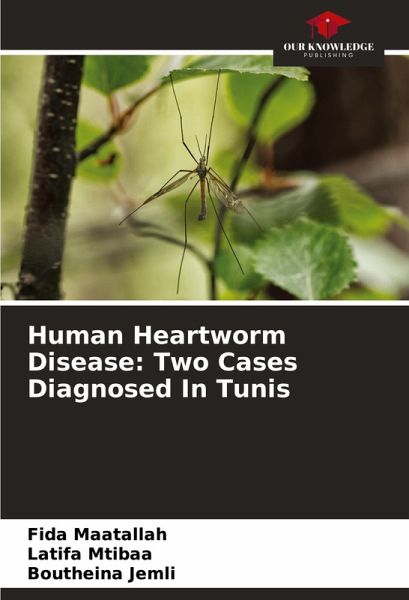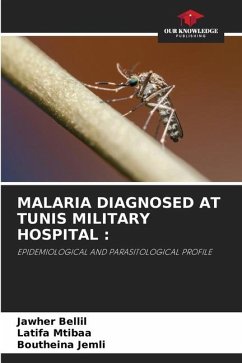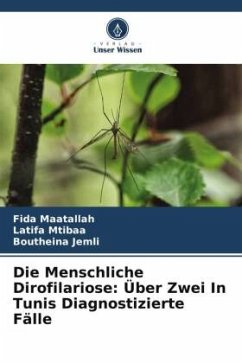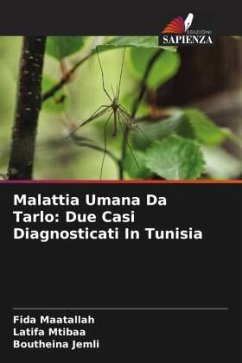
Human Heartworm Disease: Two Cases Diagnosed In Tunis
Versandkostenfrei!
Versandfertig in 6-10 Tagen
29,99 €
inkl. MwSt.

PAYBACK Punkte
15 °P sammeln!
Dirofilariasis is a vector-borne zoonosis caused by a filaria of the genus Dirofilaria. The definitive host is mainly the dog, and man constitutes a parasitic dead end. The most frequently detected parasitic species in humans is Dirofilaria repens (D.repens). The aim of our work was to study the epidemiological, clinical and biological characteristics of dirofilariosis, as well as its treatment, by reporting two cases of D.repens human dirofilariasis in Tunisian patients. The 1st case was a 79-year-old man with a history of contact with dogs who complained of ocular redness of the right eye re...
Dirofilariasis is a vector-borne zoonosis caused by a filaria of the genus Dirofilaria. The definitive host is mainly the dog, and man constitutes a parasitic dead end. The most frequently detected parasitic species in humans is Dirofilaria repens (D.repens). The aim of our work was to study the epidemiological, clinical and biological characteristics of dirofilariosis, as well as its treatment, by reporting two cases of D.repens human dirofilariasis in Tunisian patients. The 1st case was a 79-year-old man with a history of contact with dogs who complained of ocular redness of the right eye resistant to symptomatic treatment. Ophthalmological examination revealed a filiform nematode in a subconjunctival position, secondarily extracted and identified in the parasitology and mycology laboratory as D.repens. The 2nd case was a 71-year-old man presenting with a periorbital subcutaneous nodule and a painful forehead swelling without fever. Surgical excision revealed an adult nematode identified as D.repens. Both cases had a favorable outcome.














